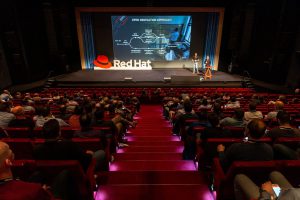Introduction
Software license agreements govern the way a software product can be used and distributed. Each vendor has their own approach to licensing and to enforcing compliance. It is therefore essential that you carefully review the terms of a license agreement and make sure you completely understand what you are agreeing to before you proceed. Having vendor-specific license compliance expertise, whether from internal or trusted external sources, is a must if you want to ensure you get what you expect.
Oracle is no different in this regard. Software licensing is a significant part of Oracle’s revenue and misunderstandings from your side can result in millions in fines if an audit from Oracle finds you non-compliant. This article is designed to assist you in your Oracle software asset management journey by giving you a high-level overview of the Oracle licensing rules.
General licensing
Oracle allows both perpetual and term-based licensing. The right to use Oracle technology is highly specific to the negotiated agreement with the customer and is granted based on the following documents:
- Oracle Master Agreement (OMA) – previously named the Oracle Licensing and Services Agreement (OLSA), this document describes the general license rights
- Ordering Document – contains the specifics of your order: products, support levels, license types, discounts, etc.
Restrictions to the usage are applied based on license types:
- Full use – no restrictions
- Application Specific Full Use (ASFU) – specific for a defined application (e.g., using Oracle with an SAP system)
- Embedded – for defined applications that make use of Oracle technology internally
Technology product licensing
Oracle technology products (databases, middleware, developer tools, and software management packs) are generally licensed based on the Processor or Named User Plus metrics.
Processor licenties
- Used when users are uncountable or difficult to verify (e.g., web-based applications)
- Popular for production environments
- All processors where Oracle software is installed and/or running are counted
- Oracle uses a special definition of processor
▪ For Standard Edition products, a processor is a socket (for multi-chip modules, each chip is counted as one occupied socket)
▪ Enterprise Edition and other products can be licensed by multiplying the total number of cores with a specific core factor (depending on the vendor and processor model) from the Oracle Processor Core Factor Table, and rounding up if the number is not whole. Getting this right is harder than it looks, make sure you get the exact hardware specifications (CPU vendor, model, frequency) from your infrastructure team - Virtualization is a point of contention as Oracle has very specific rules on partitioning to limit the number of processor licenses required, depending on the virtualization technology (e.g., VMware, Oracle VM, Hyper-V, etc.)
Named User Plus Licensing
- Used when users are countable (e.g., to license employees and contractors in a company, or to license internal applications)
- Popular for development and testing environments
- All human users and application users must be licensed, regardless whether they access the Oracle product directly or indirectly (e.g., through an interface, or through another application)
▪ Pay attention to the indirect part, make sure to document your architecture and involve an internal or external Oracle license compliance expert to avoid any costly non-compliance situations - Allows for batch processing
- Must adhere to the Oracle Minimums rule, licensed at the greater number between the Oracle defined user minimum and actual users
- If multiplexing is used (many users accessing the system via an interface and giving the appearance of much fewer users), licensing must be done at the multiplexing front end (where all the users are initially connecting)
Data Recovery Licensing
- Copying, synchronization and mirroring operations require licensing (e.g., standby machines or remote mirroring machines)
- Failover does not require licensing, and you can have Oracle products on a single unlicensed node in a clustered environment for a maximum of ten days in a calendar year
- See Licensing Data Recovery Environments for more information
Unlimited License Agreement (ULA)
- Time-based, unlimited use rights for a specific set of Oracle products
- When the ULA ends there are two possibilities:
▪ The usage of the products and the number of required licenses must be declared, and Oracle will grant you the licenses you need▪ The ULA needs to be extended (in which case the process repeats itself when the new ULA period expires)
Impact of the deployment environment on licensing
The deployment environment of your Oracle products influences the licensing rules.
Development
- Full use licenses are allowed, provided you agree to an Oracle Technology Network (OTN) Development License and the Oracle software is downloaded from OTN
- Licenses are limited to development only, and cannot be used for production/commercial purposes
QA / Testing / Staging
- Must be licensed in the same manner as a Production environment
Production
- Must be licensed under an OMA or another applicable Oracle license agreement
Audits
As part of the license agreement, Oracle reserves the right to perform an audit of your organization if it deems it necessary. Oracle audits are often time consuming and very difficult to prepare for, and non-compliance is common, as the licensing rules are complex and hard to follow. Oracle will notify you 45 days before an audit will take place. There are ways to ensure you maintain compliance and successfully pass the audit, such as ensuring you have excellent in-house or external Oracle license compliance expertise. However, detailing this would require a lengthy post and it is outside the scope of this article.
Don't get caught red handed
This brief introduction only begins to shed light on the complex topic that is Oracle licensing. The rules change often and staying on top of them requires a lot of dedicated focus.
It is important to remember that Oracle is also a hardware vendor and the software running on that hardware might be subject to specific licensing rules (e.g., one of their Engineered Systems, the Exadata Machine, comes with performance-enhancing software that requires specific licensing).
Oracle software license specialists are invaluable for companies that want to ensure compliance and avoid a hefty fine. If you find that you lack that expertise internally, our Oracle license compliance experts have saved many companies from Oracle fines that were sometimes several times larger than their entire IT budget.
Reach out to us if you want to know how to ensure a smooth and compliant operation. Read more about our software asset management services on our dedicated page.



